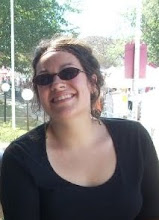I was in Matola, in Maputo providence, for election day. Since returning home, I’ve gone over my notes and observations trying to get a grasp on my personal account of Mozambique’s 2009 elections. I’m trying to piece together all that I saw in order to make a story of it. What is my election day story? Pre-election day, while at Universidade Eduardo Mondlane, I noticed that there were no campaign materials hanging around campus. Goba had previously explained to us that the entire administration was composed of Frelimo members, as it is a requirement for upward mobility within Mozambican academia. Considering this, I was surprised that the campus wall space had not been colonized by Frelimo, as the rest of Maputo had. At Wayne, the campus had election materials everywhere during this past election. Wouldn’t the parties in Mozambique want to target people under 25, to gain support of Mozambique’s largest age cohort? I asked the director of the law school if Eduardo Mondlane had banned campaigning on campus. He replied, no, they had not banned it- there simply was just no need to campaign on campus. I didn’t fully understand until the end of the interview. He introduced us to all the directors-past, via the portraits that hung on the opposite wall. Each had left their post as Director of the Law School at Universidade Eduardo Mondlane.when they received a high-ranking position within Frelimo. Experiences like this, and ones like watching Frelimo spend campaign finance used to rally children (the voters of 2019), lead me to believe that Frelimo is not worried about persuading the voters of 2009. It was like a through-the-roof confidence level of victory. On actual election day, the observation that interested me most was the level of secrecy that Mozambicans held the vote to. I was told a number of times by respondents that their candidate of choice was a secret. Those who actually admitted to favoring MDM (2 people and 2 different locations), did so only while the camera was off. Once we started taping, the two men both took the chance to either praise Frelimo, or to insist that Frelimo had provided for them. Why did these men choose to trust us, but not our camera, with the truth? My observations of democracy in Mozambique was mainly impacted by what I saw at the university level. My group saw a certain level of censorship that prevented us from really hearing what it was the students thought about Frelimo. We did hear frustrations about the "government," but nothing party specific. It could be that the government just means the whole network of leadership that has frustrated the students... or it could be that not one other party has run Mozambique since the 1975 revolution. What happens to people who openly oppose that party? I'm sure life (and careers) become just a little harder for that individual. At least that's the impression I got at Eduardo Mondlane. |
If Only...reflections of Mozambique
13 years ago

No comments:
Post a Comment